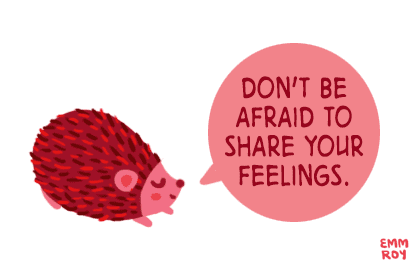All I have is a doctor or two, some friends, a bottle of pills, and a big mouth. These all serve as strategies to cope when I’m feeling especially hypomanic or depressed. I’m not the most strategic person in the world, but these few little “mental illness accessories,” as I like to call them, keep me as put together as possible in the ever-changing world that surrounds me. Navigating my bipolar disorder often seems like I’m living in an obstacle course inside of a pitch black haunted house. No map, just my mood swings and me.
When it comes to an inevitable mood swing, however severe, I do my best to release it in the healthiest way possible. Now, what are the coping options I listed? Doctors, friends, pills, my big mouth. My phone’s currently dead, so friends and doctors are out the window. Pills are usually my last resort, so I’ll use my big mouth. It never really gets much rest when my idea of stable is talking my professors’, friends’, and family’s ears off.
As a student, I constantly use my voice. In class, in office hours, at meetings, while asking questions, etc. My mouth never gets a break; I absolutely love to talk. Not talking for the sake of talking, but speaking to make a difference and to learn. I’m an advocate for using your individual voice until your throat feels raw. But this challenges so many people because of the fear we have surrounding the power of our own voices. As Audre Lorde says, “And of course I am afraid, because the transformation of silence into language and action is an act of self-revelation, and that always seems fraught with danger.” My voice shapes my attempts at bettering my experiences as a person who lives with bipolar disorder. Pathology of my “bipolar behavior” has placed me inside of this narrow box of what constitutes “bipolar,” but with my voice I can express how it feels, how it manifests, how my life actually operates beneath that label, how my unique experience fits in within that box.
Recently, I attended a discussion on how underrepresented students felt the 2014-2015 school year served them at my school, the University of Kansas. I didn’t come to this discussion expecting to say much, but in all honesty, I think I scared the Vice Provost with how dissatisfied I’ve been with my university’s treatment of mental illness. He asked questions about what we could do to better the environment, and I went on tangents about how to improve our Counseling and Psychological Services. They rejected me from their services because I already had the diagnosis of “bipolar.” My voice rang loud and clear in the room of maybe thirty to forty people, and I received a lot of support from my peers.
Not only do I attend discussions like that one to express frustration with the my university’s failure to treat mental illness, but I casually speak about my disorder all the time with friends, family members, sometimes even professors. Recently, I actually discussed it in a job interview. (Guess who got the job!) Sometimes it’s a little heavier on my heart to discuss it because of depression or anxiety, but I use my voice as a coping strategy. I speak to gain validation from my fellow peers with mental illness. I speak to bond over our sometimes shared, sometimes newfound experiences. I don’t let my voice rest because I see it as one of the most organic and helpful ways to alleviate the physical, mental, and emotional baggage that comes with the disorder. I speak to heal, to survive, to carry on.
Do you want to know what’s beautiful about being open about your mental illness? It allows others to do the same thing. Since I started openly discussing my unique bipolar experience a few months ago, dozens, and I seriously mean dozens, of my friends have approached me with their own stories of therapists who didn’t get it, not having the quite right medication yet, or anxiety preventing them from coming to social gatherings. These are just a few examples of the widespread impact of mental illness. Sharing your voice and story reduces the stigma and gives your peers space to do the same.
My bipolar doesn’t equate to your bipolar, nor will our coping mechanisms be the exact same, but I can do my best to share my strategies with you so maybe we can come to our personal solutions through a discussion of what works best. I advocate for the spreading of stories to destigmatize, and it’s possible and okay for you to completely disagree with me. But if you feel comfortable enough to do so, I urge you to share your story and let it be okay for others to do the same.
Read the rest of Mark’s posts here.


